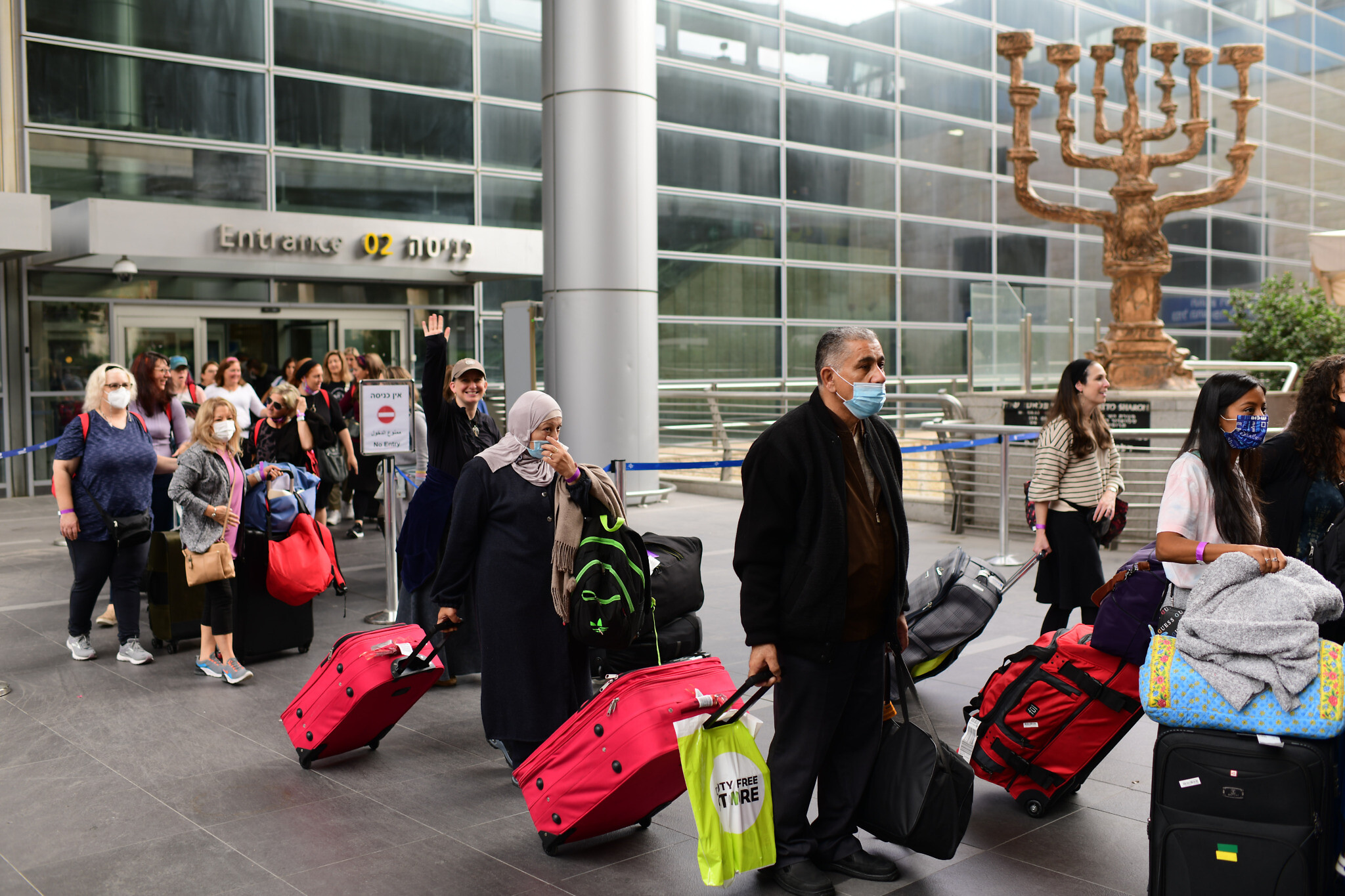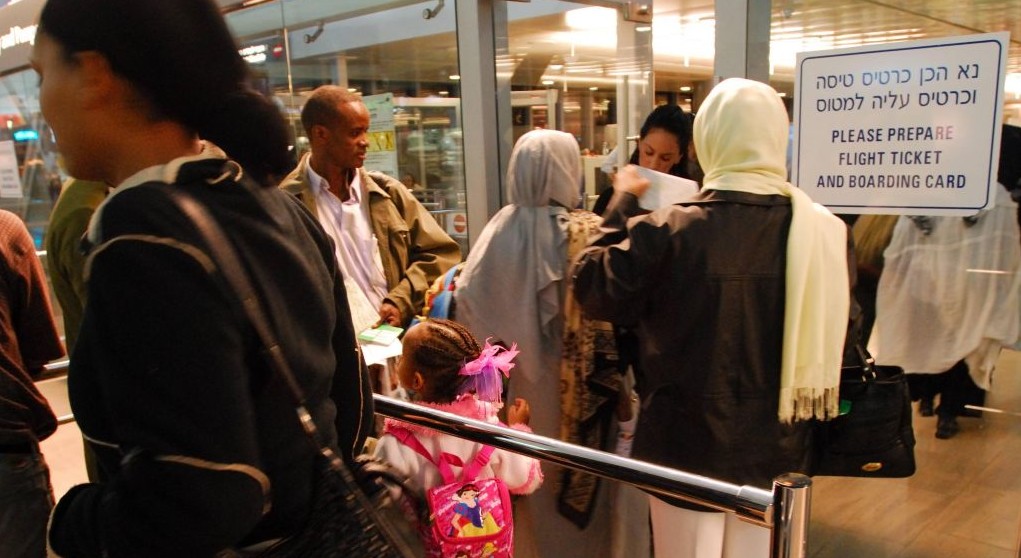
Improved treatment of US citizens of Palestinian descent is a key US demand in talks with Israel on joining Visa Waiver Program
Interior Ministry authorities have notified their US counterparts last week that Israel will ease restrictions on the entry of American citizens of Palestinian descent at Ben Gurion Airport, addressing a key stumbling block in Israel’s effort to be included in the US Visa Waiver Program (VWP), a senior Israeli official confirmed to The Times of Israel.
While no official entry ban exists for Palestinian Americans at Ben Gurion Airport, in practice many are denied and others endure long, invasive security examinations by the Shin Bet security service upon arrival. The policy has left Palestinian Americans with little option but to travel to Amman and try to enter the West Bank through the Israeli-controlled Allenby Crossing.
US authorities have long raised the treatment of such travelers in negotiations with Israel over the latter’s effort to be added to the VWP, which would allow Israeli citizens to enter the US without a visa.
It was not immediately clear what new mechanism would be put in place to allow US citizens of Palestinian descent to travel through Ben Gurion Airport with greater ease, and a spokesman for the Shin Bet declined to detail the agency’s procedures on the matter.
The policy will not extend to the thousands of Palestinians who hold both American citizenship and Palestinian ID cards, the senior Israeli official clarified.
Interior Minister Ayelet Shaked — who last month told The Times of Israel that Israel would be added to the VWP by the beginning of 2023 — updated US Ambassador to the US Tom Nides last week on the decision to ease the Ben Gurion restrictions, the official said, confirming an Army Radio report on the matter.
Shaked said last month that a delegation from the US Homeland Security Department is scheduled to arrive in Israel next month for meetings with Israeli counterparts aimed at advancing efforts to make Israel the 40th country on the US VWP.
Currently, in the absence of being part of the VWP, US law requires Israelis to apply for a visa in advance of their travels to the US — a process that often takes months, as it requires scheduling an appointment at the US embassy for a background interview during which consular staff seek to ensure that incoming travelers are not looking to remain in the US indefinitely.
If a candidate passes the interview process, they must submit their passport to the embassy, and it usually takes at least several weeks before it is returned with a visa inside.
The timeline has been further drawn out as a result of the pandemic, with some Israelis reporting that the only appointments available at the embassy are for a year hence.
For years, Israeli officials have sought to convince US administrations to add the country to the Visa Waiver Program, but Jerusalem has been hobbled by relatively high rejection rates, mainly because of recently discharged IDF soldiers looking to travel for extended periods of time, drawing the skepticism of US visa adjudicators.
But recent months have given Israelis reason for optimism. During a White House meeting with Prime Minister Naftali Bennett in August, US President Joe Biden said he had instructed his staff to work on adding Israel to the VWP.
To enter the program, Israel will have to get its visa refusal rate below three percent by October 2022. Then-Israeli ambassador to the US Gilad Erdan said in August that the current rate is roughly 4.5%. Another hurdle will be granting the US access to Israeli criminal records in order to adjudicate visa requests from citizens with rap sheets — something that will require Knesset legislation.













